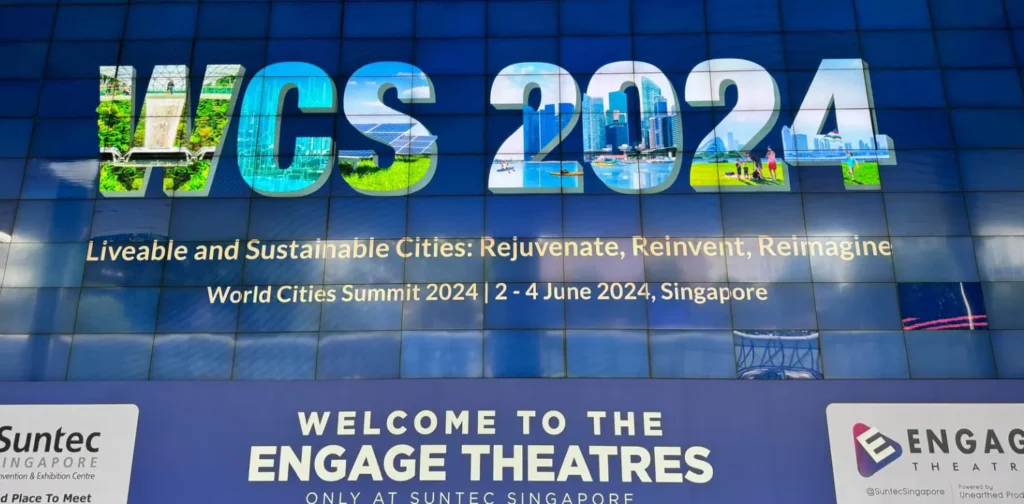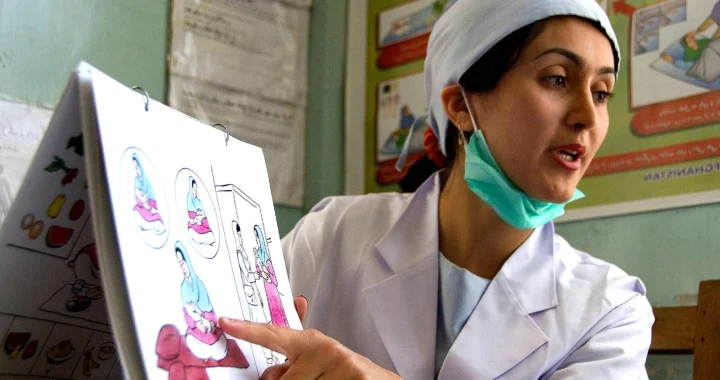World Cities Summit 2024: A Trigger to Help Build a Sustainable Singapore

Photo: World cities summit 2024.
In my course of work, I visit many cities in the Asian region. Without fail, each visit reminds me of the urgency to take concrete steps to make cities more liveable and sustainable. My participation in the World Cities Summit 2024 as my company’s representative at the Young Leaders’ Symposium solidified this belief and made me even more determined to be a sustainability changemaker.
Learning from Experience
Over the years, many Asian cities have become hotter, more congested, and more polluted in terms of air quality and noise. Road walkability and safety often need improvements.
In 2015, I spent one and a half months in Tianjin, China, as part of my polytechnic studies. During my stay, I learned about the Sino-Singapore Tianjin Eco-City, a collaborative project between Singapore and China to build a sustainable urban centre on water-scarce, non-arable land. Today, the Eco-City proudly hosts 100,000 residents and 7,000 businesses.
That experience, including visits and lessons at the local university, became a foundation for me. I learned how sustainable urbanisation can be achieved – despite tough environmental conditions – and how such models can be replicated in other cities.
It has dawned on me that cities can be better conceptualised and designed. Thus, I think inheritors of the future, like us Gen Zers, should be the ones shouldering the responsibility of shaping cities.
World Cities Summit 2024
The World Cities Summit 2024 concluded recently in Singapore. It was a high-profile global platform for government leaders and industry stakeholders to collaborate and build better cities.
“The most important factor and actor in all of this, are not just our people, but our young people, more of whom will live in cities and build them,” said Alvin Tan, Singapore’s Minister of State for Trade and Industry (MTI), and Culture, Community, and Youth (MCCY), in his keynote speech. At the Symposium, sitting among young professionals with aspirations to mould their homes into vibrant cities of the future, I couldn’t have felt this more keenly.
There were urban researchers, architects, sustainability consultants, and even a heritage content creator who worked to raise residents’ awareness of obscure but fascinating places in Singapore. Listening to my peers so passionately championing their work and beliefs convinced me that building sustainable cities is a 360o multilateral effort. Governments provide the policy environment, the private sector the funds and technology, and the people the dream, heart, and direction.
From, by, and for the People
At the Summit, mayors from all over the world spoke about the souls of cities—defined by the communities. It’s easy to see a city for its shiny, futuristic buildings, but ultimately, it is its people that give it energy, character, and meaning.
The remarks remind me of Singapore, with provisions for migrant workers and local citizens to interact. For example, amenities like migrant worker recreation centres offer migrants and locals spaces to grocery shop, dine, and take part in sporting activities together.
Further nurturing the soul of our city, Singapore will conduct detailed research to clarify the link between the urban environment and residents’ mental well-being, as announced at the Summit. It will examine factors like urban design features, density, and human behaviours. These findings will guide the republic’s efforts to rejuvenate, reinvent, and reimagine itself. As a young sustainability changemaker, I would like to champion efforts to do more in such areas.
Data and Transparency
Next, I have learned that planning for the future requires current data. With data and simulation technologies, it is possible to build cities that are more energy efficient, walkable, and flood resistant, among other attributes. The more comprehensive and accurate the data, the better the simulation will work and the closer we get to the true city that will be built.
However, perhaps it’s human nature to hide our flaws. Several participants at the Summit have noted that successes are much more ardently shared than failures. It is my hope that stakeholders will be more transparent and forthcoming with all data so that cities can holistically learn from one another’s experiences and accelerate their paths to sustainability.
Championing Change
All in all, my participation at the Summit broadened my worldview and built on the foundation I had laid from my previous experiences. Indeed, the future for urban sustainability is bright if we dare to dream, collaborate, and persevere.
I am thankful for the opportunity to attend the World Cities Summit 2024. It is my springboard to rally city builders to embrace innovation and experimentation and make our homes more liveable and sustainable in the coming decades.
Editor: Nazalea Kusuma

Co-create positive impact for people and the planet.
Amidst today’s increasingly complex global challenges, equipping yourself, team, and communities with interdisciplinary and cross-sectoral insights on sustainability-related issues and sustainable development is no longer optional — it is a strategic necessity to stay ahead and stay relevant.


 Assessing Indonesia’s Step into Global Carbon Markets
Assessing Indonesia’s Step into Global Carbon Markets  Prioritizing Finance for Nature for Healthy and Resilient Ecosystems
Prioritizing Finance for Nature for Healthy and Resilient Ecosystems  Integrating Indigenous Practices into Australia’s Defense Against Heatwaves
Integrating Indigenous Practices into Australia’s Defense Against Heatwaves  Systemic Shift to Enable Healthy School Food Environments
Systemic Shift to Enable Healthy School Food Environments  Looking into the Global Midwife Shortage
Looking into the Global Midwife Shortage  Reframing Governance in the Era of Water Bankruptcy
Reframing Governance in the Era of Water Bankruptcy